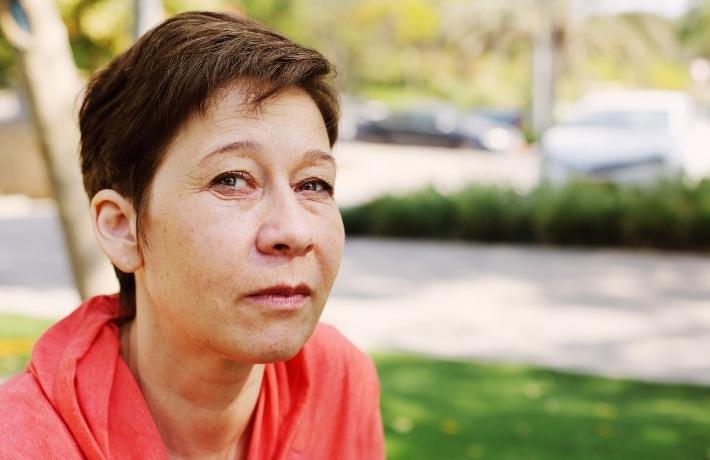The Mitchell family’s story

Imagine escaping a violent relationship only to be frightened of what your child might do because she is exhibiting similar behaviours to those witnessed while growing up.
The Mitchell family remind us of the increasing issue of adolescent violence in the home and the impact that programs like Functional Family Therapy (FFT) can have.
For most of their lives, Sarah’s* kids witnessed violence perpetrated by their father. Influenced by alcohol, arguments would result in physical violence. Fighting between Sarah and her children’s father David* was frequent and Sarah’s eldest child, Emma* (aged 13) would often step in to protect her mum, calling the police to put an end to the attacks.
Finally, Sarah broke free of David, and now Emma and her brother Toby* (aged 11) no longer live in fear of what their dad might do to their mum, but Emma’s behaviours were beginning to mimic those of her father’s.
The anger Emma felt influenced by what she had seen and heard was now driving her own violent outbursts. Emma was aggressive and violent toward her mum Sarah and little brother Toby. And Mum was afraid to put any limits on Emma’s behaviour for fear of her response.
Sarah was exhausted and was using alcohol to help her relax and sleep at night. She was on edge and unable to cope.
– says FFT Therapist Nathanial“When we met Sarah and the kids, she was ready to give up, she was so desperate, tired and at her wits end, she even asked me what the process was to surrender the kids to child protection. There was no way I was going to let that happen, not before we gave them a chance to work on changing things,”
Many referrals to OzChild’s FFT program on the NSW Central Coast are for families with young people who have a disability, are disengaged from school and have been experiencing Domestic and Family Violence for generations.
Emma had been diagnosed with Attention-Deficit Hyperactivity Disorder and Oppositional Defiant Disorder, which contributed to the difficulty in concentrating, impulsive, defiant and disobedient behaviour.
When Nathanial began working with Sarah and her kids it was obvious there was a lot of blame and negativity in the family, and so sessions were targeted at reducing these using strength-based relational statements and reframing behaviours. This led to increased empathy for each other and increased vulnerability with each other which allowed them to be sad rather than mad, drawing the family closer together.
For the family to change their functioning, they developed new ways of interacting positively. Together they worked on problem-solving and negotiating and developing some house rules.
Sarah’s parenting skills were strengthened as she learnt to listen to her children in a way that they felt heard rather than judged, which helped to restore trust. And Sarah began to focus on improving her own mental health, she started exercising again, reading and reducing her alcohol intake.
She also learnt to walk away when she was feeling triggered, she was able to step aside, calm down and then come back to parent them more effectively without nagging, screaming, criticizing, rejecting or blaming. The children then began listening to her more, co-operating and following her instructions.
Sarah, Emma and Toby learnt to be more assertive rather than either aggressive or passive, state how they were feeling and what they needed or wanted more effectively, this resulted in more harmonious interactions and conversations and helped Emma to remain calm and focused rather than lashing out.
The FFT Therapist Nathanial supported Emma’s return to her own therapy.
Recently Nathanial spoke to Emma’s psychologist who told him she had heard from the family about this “miracle worker” who had helped them work as a team rather than be in competition with each other, and that they were now much happier because there was so much less fighting and ‘agro’ in the house.
There is no doubt this evidence-based program plays a critical role in achieving change and is a vital and unique intervention in the service system in the fight to stop the escalation of violence and protect victim-survivors from both immediate and long-term harm.
OzChild is committed to seeing further investment in the FFT program to address the needs in the local community to eliminate the use of violence by young people in the family setting, change their behaviour and divert them away from the out-of-home care or criminal justice systems.
*names have been changed to protect identities
Functional Family Therapy (FFT)
Functional Family Therapy is a family intervention program that supports adolescents with behavioural problems. The program has supported many adolescents and their families in various multiethnic and Indigenous cultural contexts globally.
Learn moreChoose your region
Select your region to create an enhanced and personal experience.
